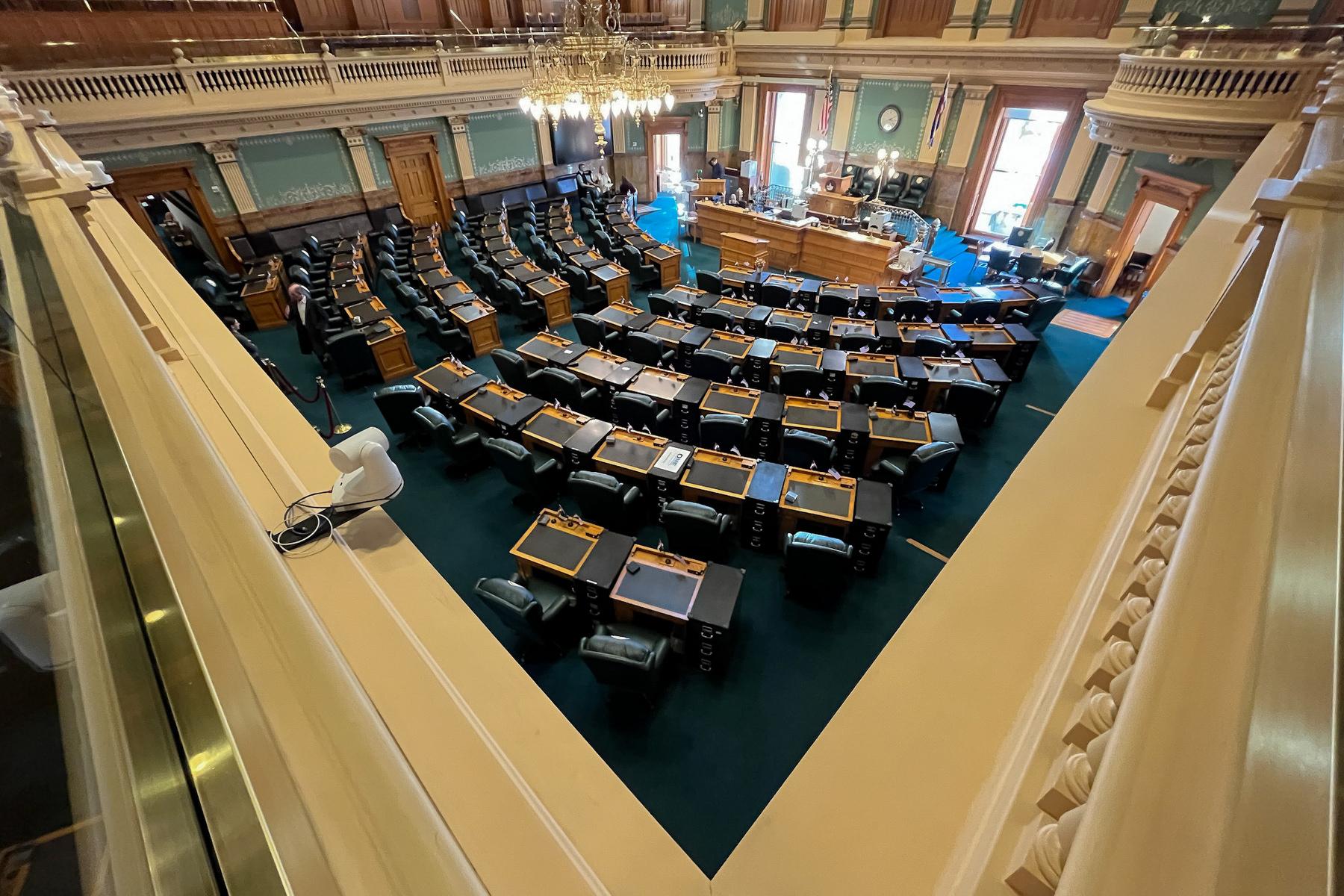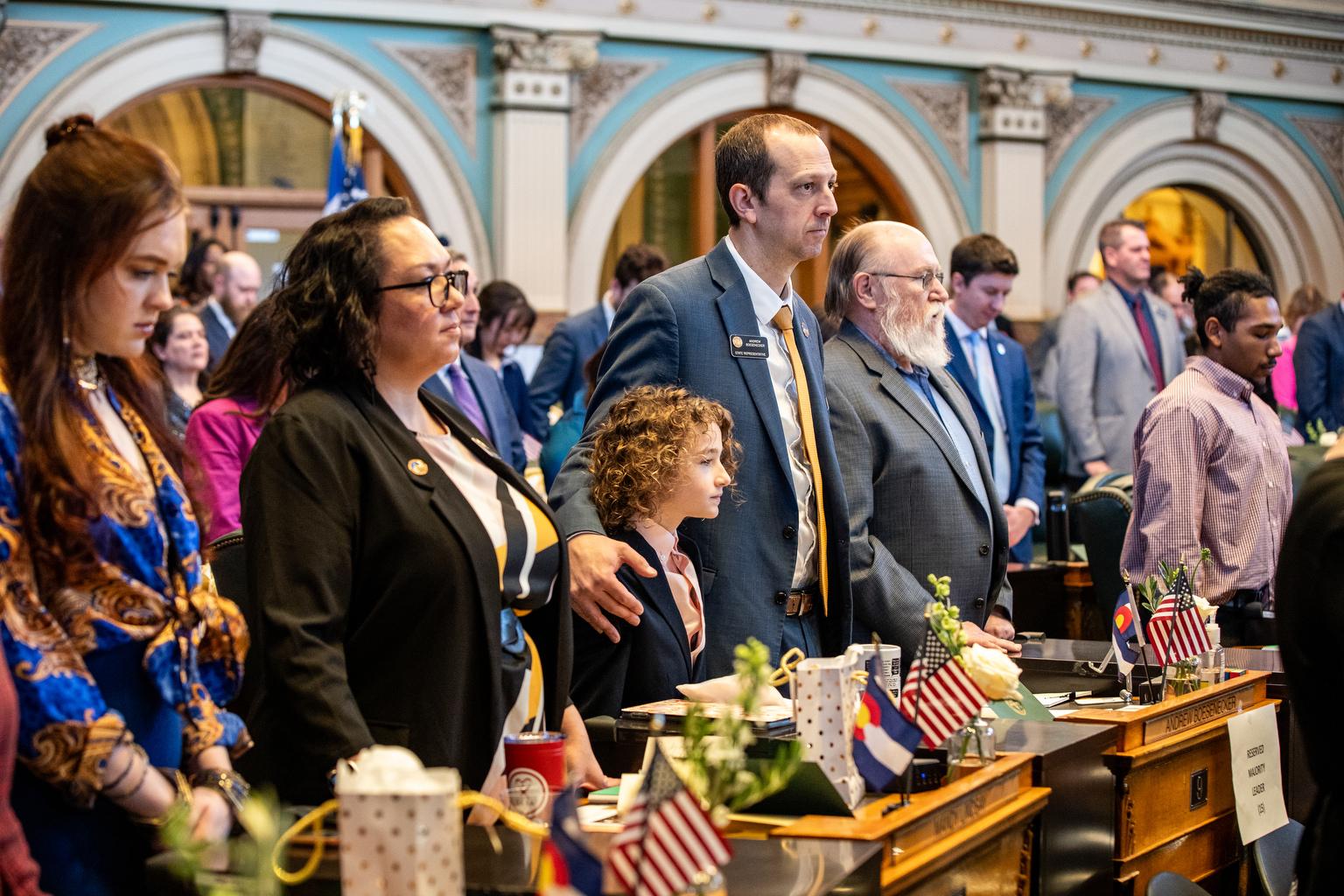
Colorado's 100 lawmakers convene at the state capitol today for the start of their annual legislative session. Over the next four months, they will debate and discuss everything from immigration and health care, to housing and the tight state budget.
Opening day traditionally involves a lot of pomp and ceremony. Surrounded by their families and loved ones, lawmakers will be officially sworn into office and legislative leaders will lay out their priorities in speeches. On Thursday Gov. Jared Polis gets a chance to highlight his own priorities for the session in his annual State of the State address.
Democrats retain control of state government and both legislative chambers, though the party holds a slightly smaller, 43-22, majority in the House, after Republicans managed to flip three seats in the recent election. The split in the Senate remains 23 Democrats to 12 Republicans, although two seats changed hands. Those margins leave Democrats just shy of a legislative supermajority in both chambers.
The reshuffling of each chamber went almost all the way up to opening day. Three senators resigned their posts for various reasons late last year, requiring vacancy committees to fill their positions.
Over the weekend, a Republican vacancy committee selected former CU regent John Carson for one of those seats. Democratic Rep. Iman Jodeh of Aurora was picked for another, and late Tuesday night, Matt Ball, policy director for Denver mayor Mike Johnson, won the third.
Incoming Democratic Senate President James Coleman said he thinks his party has delivered on the issues that matter most to Coloradans, and that his caucus plans to recommit to efforts to make Colorado more affordable and safer. And, he said, Democratic lawmakers are preparing to oppose initiatives from the incoming Trump administration.
“We will meet the challenges and uncertainty coming from Washington head on to protect our freedoms, our values, and the Colorado way of life,” said Coleman.
Immigration could rapidly become a flashpoint between the state and the federal government. The U.S. House on Tuesday approved a bill prioritizing deportation for undocumented immigrants arrested for lower level crimes, while Colorado law bars local law enforcement from working with immigration authorities.
“We don't know what's going to happen,” said Senate Majority Leader Robert Rodriguez of Trump’s promises of mass deportations. “Being able to adjust and make sure we provide resources (if) they're needed on a quick basis is something we have to be ready for.”
For their part, Republican leaders say they want to see the state reverse course and roll back some business regulations and consumer fees.
“It's the nickel-and-diming of Coloradans, and they're tired of it,” said House Minority Leader Rose Pugliese. She said there’s an opportunity this session to pass policies that could make real impacts to people’s pocketbooks.
When it comes to the state's pocketbook, lawmakers must deal with a roughly $700 million budget shortfall, a reality which will make it very tough to pass any new policies that come with a cost.
“There is no money to spend. I think members have been keenly aware of the challenges they will face this year, and as always, the budget is balancing our priorities,” said Democratic Speaker of the House Julie McCluskie.
Republicans argue new Democratic programs, and carelessness in how the state used one-time federal COVID relief money, set the state up for a structural deficit.
“We just flat-out over-extended,” said GOP budget committee member Sen. Barbara Kirkmeyer. “We knew this was coming.”
Figuring out what to do about it though will be one of the bigger tasks facing her and her colleagues this year.
- With little to spend but much to debate, lawmakers convene Colorado’s 75th General Assembly on Wednesday
- From guns in cars to family tax credits, here are some of the new laws going into effect Jan. 1
- Denver’s next state Senator is an Army veteran, fifth-generation Coloradan and top city official (Denverite)
- Colorado Sen. Janet Buckner to resign
- State Sen. Chris Hansen will leave the legislature to lead the La Plata Electrical Association








